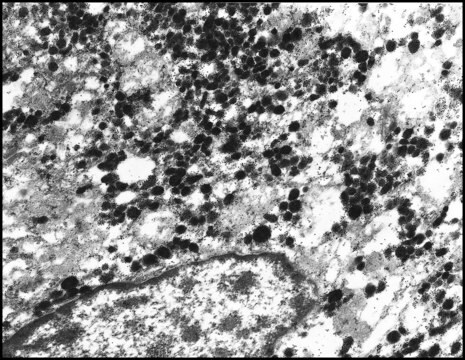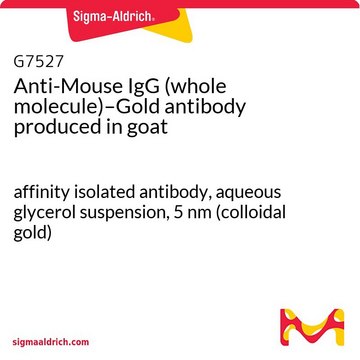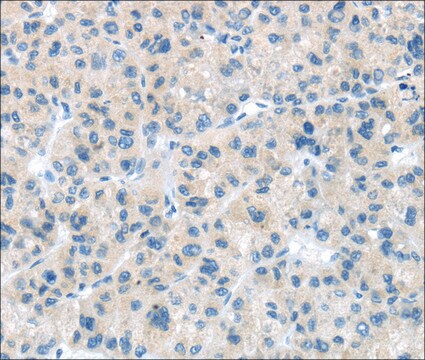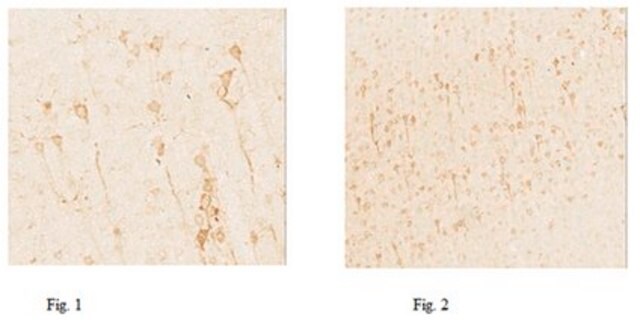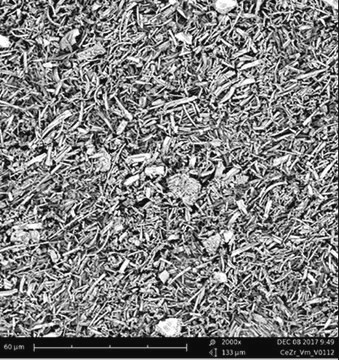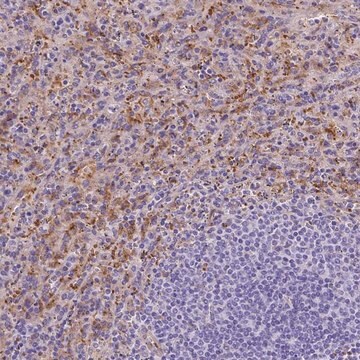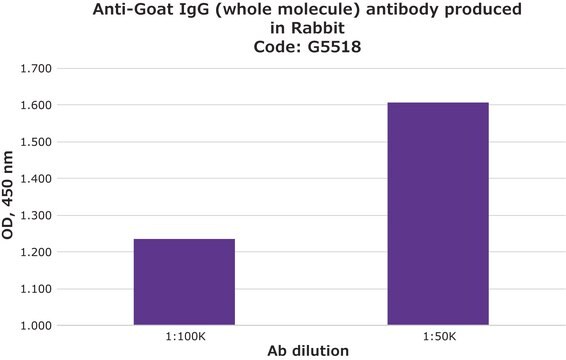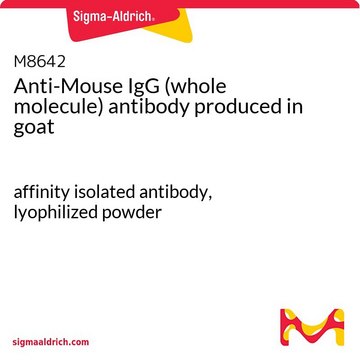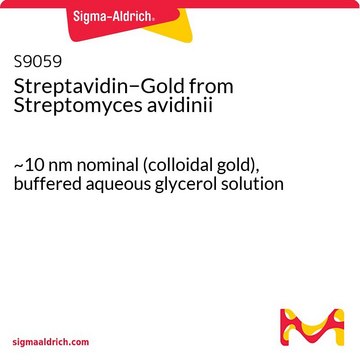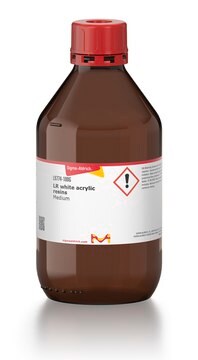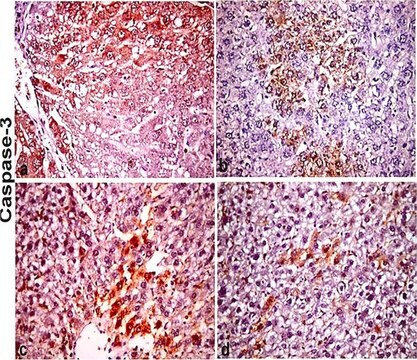Wichtige Dokumente
G7652
Anti-Mouse IgG (whole molecule)–Gold antibody produced in goat
affinity isolated antibody, aqueous glycerol suspension, 10 nm (colloidal gold)
Synonym(e):
Goat anti-mouse IgG
About This Item
Empfohlene Produkte
Biologische Quelle
goat
Qualitätsniveau
Konjugat
gold conjugate
Antikörperform
affinity isolated antibody
Antikörper-Produkttyp
secondary antibodies
Klon
polyclonal
Form
aqueous glycerol suspension
Partikelgröße
10 nm (colloidal gold)
Lagertemp.
2-8°C
Posttranslationale Modifikation Target
unmodified
Suchen Sie nach ähnlichen Produkten? Aufrufen Leitfaden zum Produktvergleich
Allgemeine Beschreibung
Immunogold labeling is a technique whereing antibodies, especially secondary antibodies, are labeled with colloidal gold. These gold conjugated antibodies generate electron dense particles that are visable using electron microscopy.
Immunogen
Anwendung
Physikalische Form
Haftungsausschluss
Sie haben nicht das passende Produkt gefunden?
Probieren Sie unser Produkt-Auswahlhilfe. aus.
Lagerklassenschlüssel
10 - Combustible liquids
WGK
WGK 3
Flammpunkt (°F)
Not applicable
Flammpunkt (°C)
Not applicable
Persönliche Schutzausrüstung
Eyeshields, Gloves, multi-purpose combination respirator cartridge (US)
Analysenzertifikate (COA)
Suchen Sie nach Analysenzertifikate (COA), indem Sie die Lot-/Chargennummer des Produkts eingeben. Lot- und Chargennummern sind auf dem Produktetikett hinter den Wörtern ‘Lot’ oder ‘Batch’ (Lot oder Charge) zu finden.
Besitzen Sie dieses Produkt bereits?
In der Dokumentenbibliothek finden Sie die Dokumentation zu den Produkten, die Sie kürzlich erworben haben.
Kunden haben sich ebenfalls angesehen
Unser Team von Wissenschaftlern verfügt über Erfahrung in allen Forschungsbereichen einschließlich Life Science, Materialwissenschaften, chemischer Synthese, Chromatographie, Analytik und vielen mehr..
Setzen Sie sich mit dem technischen Dienst in Verbindung.